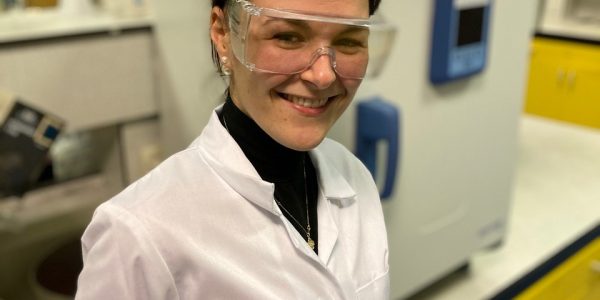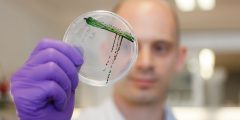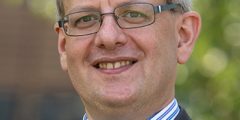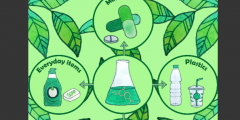The magic Lanterna: harnessing light for sustainable chemicals
January 8, 2021
Dr Anabel Lanterna is Assistant Professor in the School of Chemistry and a member of the Green Chemicals Beacon. Her expertise in photochemistry and materials chemistry has led her to work with world experts in the field, most recently with Prof. Tito Scaiano in Canada. In 2020 she moved to Nottingham to start her independent …
Super sustainable processes: making green hydrogen from waste.
December 17, 2020
Chai Lee (Jesslyn) is a Research Fellow in Sustainable Processing in the Green Chemicals Beacon and is also a member of the Sustainable Processing Technologies Group. In this interview, she talks to Jo Gregory about her research, inspirations and the importance of using sustainable processes for the generation of electricity and power. What is your …
Planet organic: an interview with Dr Mattia Silvi
December 3, 2020
Dr Mattia Silvi joined the Green Chemicals Beacon as a Nottingham Research Fellow in October 2019. Based in the GSK Carbon Neutral Laboratories for Sustainable Chemistry he directs a research group who are focused on the development of new organic chemistry reactions. In this interview, he talks to Jo Gregory about his research, his inspirations …
Machines can be green: how AI is making chemistry more sustainable.
October 26, 2020
Jonathan Hirst is a Professor of Computational Chemistry and member of the Green Chemicals Beacon. He has recently been awarded the Royal Academy of Engineering Chair in Emerging Technologies. The prestigious award is a significant financial investment over ten years and will support Jonathan and his team with their aim of developing machine learning models, …
Our chemical romance: why society needs Chemistry.
October 12, 2020
In the second of our blogs highlighting outreach projects undertaken by PhD students in the Centre for Doctoral Training in Sustainable Chemistry (CDT) during the lockdown, we hear from Joanna Lee, Alex Edmonds, Elliott Smith and Nicole Tsang who used the time away from the labs to conceive and produce a magazine based around their …
The goal is a greener future: An interview with Dr Omar Aboelazayem
October 5, 2020
Dr Omar Aboelazayem joined the University of Nottingham in November 2019 as a Technical Specialist in Sustainable Chemical Processing in the Department of Chemical and Environmental Engineering aligned to the Green Chemicals Beacon. In this interview, he talks to Jo Gregory about his inspirations, his approach to work during the pandemic and how his research …
A different class: an education in the circular economy
September 9, 2020
With the enforced closure of the University due to COVID resulting in limited access to labs, a group of first year PhD students from the EPSRC Centre for Doctoral Training in Sustainable Chemistry faced an uncertain start to their studies, specifically the need to rethink their end of year project on the circular economy. Adapting …
Reopening laboratories: sharing best practice
August 7, 2020
The nationwide lockdown due to the spread of COVID-19 saw an impressive response from the chemicals industry and research community, both from companies that continued through lockdown and had to quickly adapt their working practices as well as organisations and universities like the University of Nottingham who rapidly closed laboratories for all but essential research. …
Statistics for sustainability: An interview with Dr Kate Haigh
June 19, 2020
Kate Haigh is a research fellow based in the Faculty of Engineering and a member of the Green Chemicals Beacon. In this interview, Kate talks to Jo Gregory about her role, her motivations and how her research ensures sustainability projects are financially viable as well as beneficial to the environment. What is your role here …










